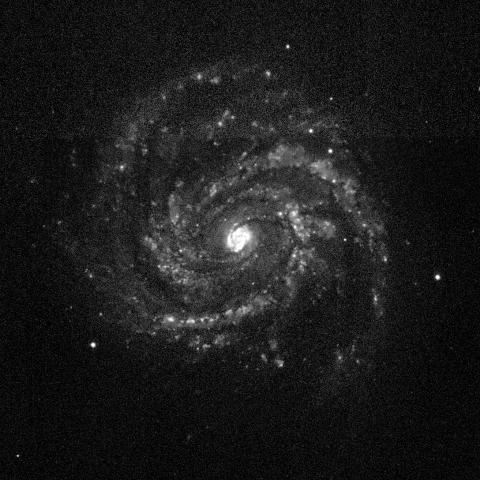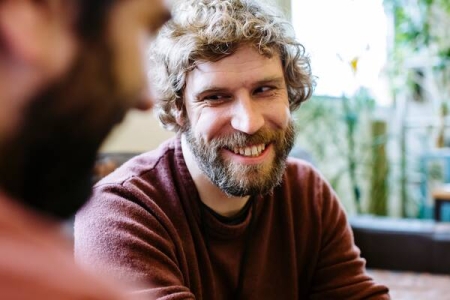

A project to make astronomy more accessible to children with a visual impairment has been shortlisted for an award
24 April 2024
4 min read
A University of Portsmouth project has been shortlisted for a Royal National Institute of Blind People (RNIB) See Differently Award in recognition of its groundbreaking work to make astronomy more accessible to children with a visual impairment.
Led by Dr Nicolas Bonne, the Tactile Universe team uses 3D printing to make models which enable students to feel how galaxies develop.
Now their work has been shortlisted in the Design for Everyone category, which is sponsored by Red Bee Design. The award recognises an individual or organisation that continues to show a commitment to understanding the everyday challenges faced by blind and partially sighted people and strives to address these learnings by showing their commitment to accessible and inclusive design.

We want to inspire young people; to let them know that if science is something they want to do, they should feel confident enough to go for it.
Dr Nicolas Bonne, Public Engagement and Outreach Fellow
The Tactile Universe project has been featured on the BBC’s Sky at Night programme and the models and accompanying resources are taken into schools to run workshops for visually impaired students and their sighted classmates. The team has also trained more than 20 other organisations to deliver workshops within their own communities to reach even more people in their mission to make space accessible to all.
Dr Nicolas Bonne, who is Public Engagement and Outreach Fellow in the Institute of Cosmology and Gravitation at the University of Portsmouth and who leads the project, said: “We want to inspire young people; to let them know that if science is something they want to do, they should feel confident enough to go for it.”
The 41-year-old was born with a visual impairment because of retinopathy of prematurity. Growing up in his native Australia, he found some aspects of studying astronomy were made more difficult because of this, which is why he wants to make the subject less reliant on using traditional visual models.
The RNIB See Differently Awards will bring together a host of people across the UK and aims to shine a spotlight on the excellent work happening every day across the UK to support people with sight loss. They recognise and reward individuals and organisations taking positive action to help break down barriers and make the world a better place for blind and partially sighted people.
RNIB CEO Matt Stringer said: “The RNIB See Differently Awards will celebrate those who dedicate their time, passion, and skills to help build an inclusive world for blind and partially sighted people. Congratulations to the shortlisted national finalists, you’re all fantastic with incredibly moving stories and we wish you the best of luck.”
The RNIB See Differently Awards will recognise exceptional individuals and teams across seven categories: Campaigner of the Year, Eye Care Professional of the Year, Best Content Creator of the Year, Team of the Year, Employer of the Year, Volunteer of the Year and Design for Everyone Award.
The award winners will be announced at a ceremony which will take place at a hotel in Central London on Tuesday 21 May 2024.
